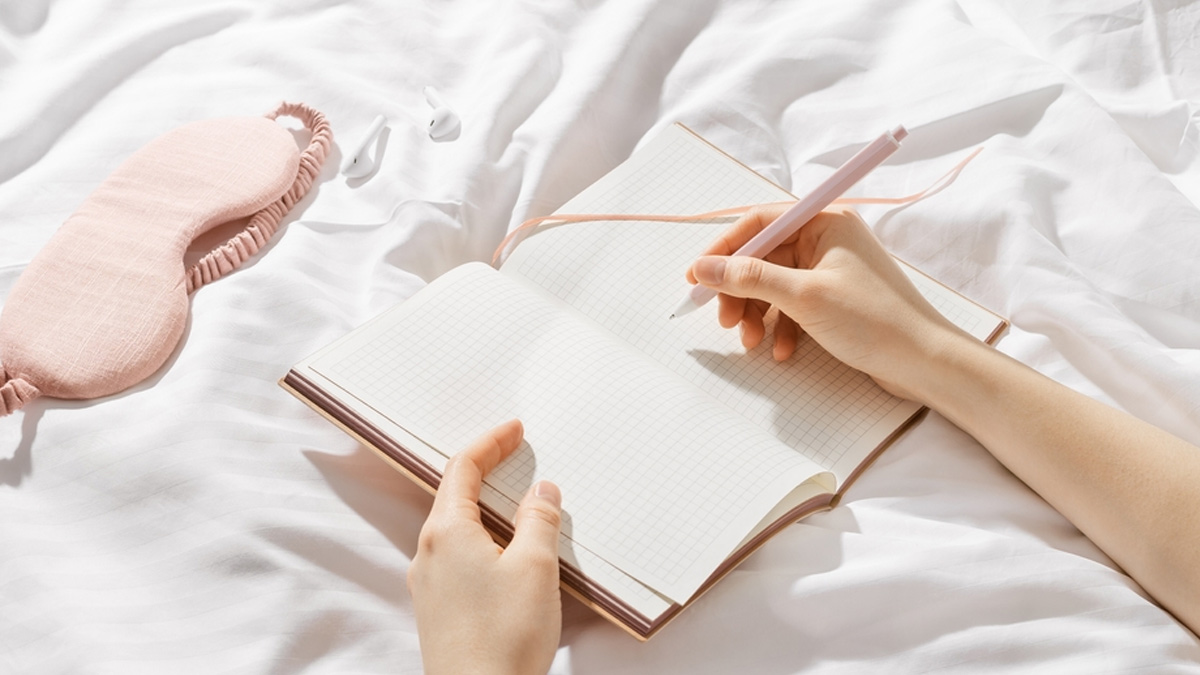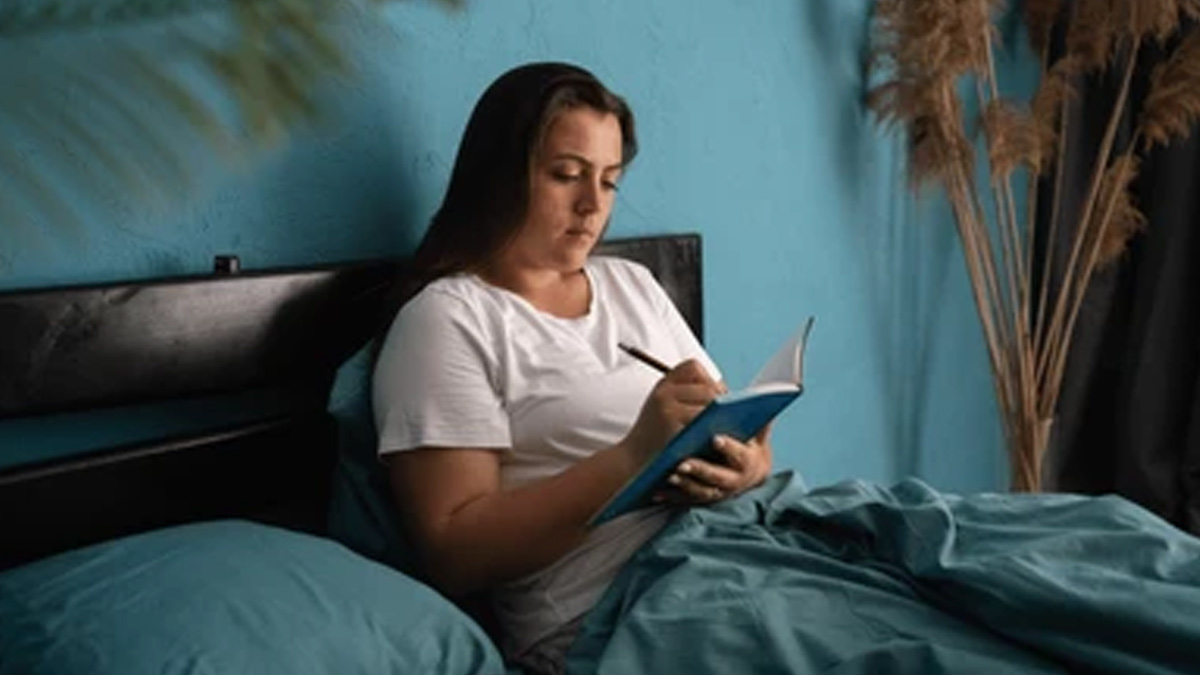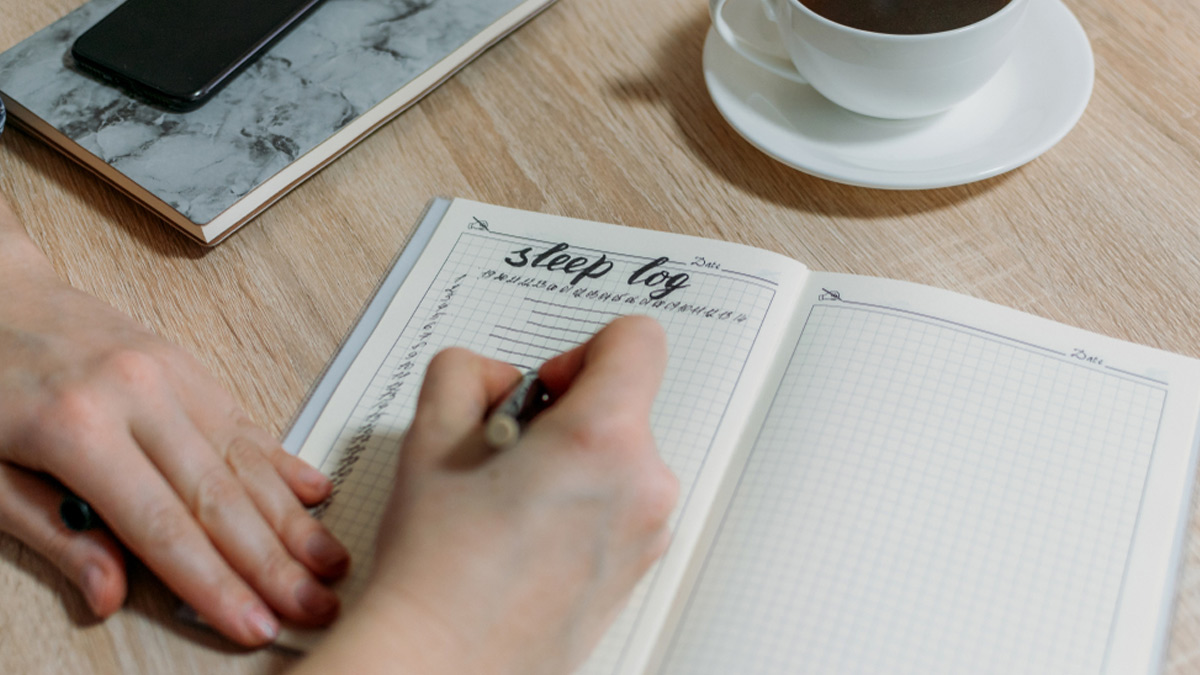
A good night's sleep is key to your overall health, but for many, it's easier said than done. Whether it's trouble falling asleep, sleeping well, or waking up not feeling rested, sleep disturbances can take their toll on your mood, energy, and well-being. If you've already tried everything, cutting back on caffeine, staying away from screens, and adhering to a bedtime ritual, but continue to find yourself tossing and turning, it may be time to turn to an often-overlooked resource: a sleeping journal.
Table of Content:-
A sleeping journal is not a fad; it is an effective tool for monitoring and comprehending your sleeping patterns. By tracking the details of your sleeping behaviour, you can more effectively discover the root cause of your sleeping disorder and make quantifiable changes to improve your sleep.
What is a Sleeping Journal?

A sleeping journal is just what its name implies—a diary in which you write about your sleep each evening. It's not just recording how many hours you sleep, but observing various things that may affect your sleep quality. You'll want to track all of it, from as soon as you go to bed until how many times you wake up throughout the night, anything you eat or drink, how active you are during the day, and how you feel when you wake up.
The concept behind this journal is to help you recognise patterns and relationships between your habits and your sleep. As time goes on, you may begin to realise that there are some behaviours or something in the environment impacting your ability to sleep.
Also Read: What Drinking Tea Right Before Bedtime Does To Body
Why Should You Keep a Sleeping Journal?
Identify Patterns and Triggers

One of the main advantages of keeping a sleep journal is its ability to help you discern patterns. For example, you could find that after you have a strenuous workout late at night, you cannot fall asleep. Or you could find that if you eat a big meal close to bedtime, you sleep restlessly. By documenting these things, you can discover correlations that aren't necessarily apparent daily.
Better Understand Your Sleep Quality
It's not merely the hours you get at night, but also about quality. You might wake up several times during the night without even realising it. Writing down your experience each morning helps you reflect on how deeply you slept. Did your rest include uninterrupted periods or tossing and turning? Did you wake up full of energy or still with the tiredness there? Monitoring it can tell you about the sleep quality you were getting overall.
Pinpoint Environmental Factors

Your sleep environment has a significant impact on how well you sleep. The light, temperature, noise level, and even the comfort of your bed can affect your sleep. By tracking these factors, you may identify changes you can make to build an optimal sleep environment. For instance, you may find that sleeping in a cooler room causes you to sleep more soundly, or that TV watching before bedtime interferes with your sleep.
Also Read: Tired of Midnight Wake-Ups? Expert Tips to Train Your Brain to Stay Asleep
Monitor Stress and Emotional Well-being
Stress and anxiety are significant sleep disturbances. When stressed, your mind is busy, so it is more difficult to fall asleep or sleep. Monitoring your mood during the day and its connection to sleeping will enable you to monitor the effect of stress on sleep. If you find that worrisome thoughts or particular daily tension are disrupting your sleep, then you can apply stress management activities, such as meditation, journal writing, or practising mindfulness to unwind yourself before retiring for the day.
Enhance Sleep Hygiene
Sleep hygiene describes the actions and habits involved in a night's sleep. Keeping a sleep journal can make you evaluate whether you are undertaking appropriate sleep hygiene practices. Do you go to bed each night at the same time? Are you winding down with a relaxing pre-sleep routine? A journal will assist you in identifying any areas where you may fall short and provide you with the opportunity to modify your habits for improved sleep.
How to Start Your Sleeping Journal
Starting a sleeping journal is easy, and you don’t need any special tools. Here’s what you should record:

- Sleep Duration: Mark down the time you sleep and wake up.
- Wakefulness During the Night: Record if you wake up at night and how long it takes to fall asleep again.
- Dietary Intake: Jot down any food or beverages you consume, especially anything with caffeine or alcohol.
- Physical Activity: Track your exercise, including the time of day and intensity.
- Sleep Environment: Write down details about your bedroom, including the temperature, noise levels, and light.
- Mental and Emotional State: Record any stress, anxiety, or calm feelings before sleep.
Examining Your Journal
After a week or two of tracking your sleep, you can begin to observe trends. Maybe you notice that after a day of high caffeine intake, you have difficulty falling asleep. Or you might find that you sleep more soundly when you steer clear of screen time an hour before bed. The trick is to find patterns that could be helping to cause your sleep issues.
[Disclaimer: This article contains information for informational purposes only. Hence, we advise you to consult your professional if you are dealing with any health issue to avoid complications.]
Also watch this video
How we keep this article up to date:
We work with experts and keep a close eye on the latest in health and wellness. Whenever there is a new research or helpful information, we update our articles with accurate and useful advice.
Current Version
